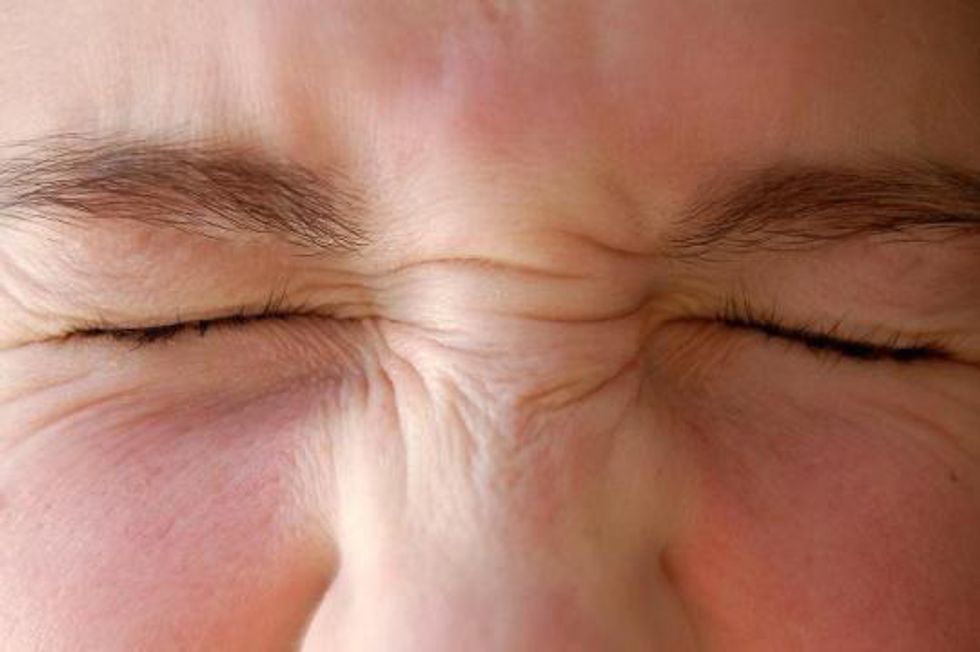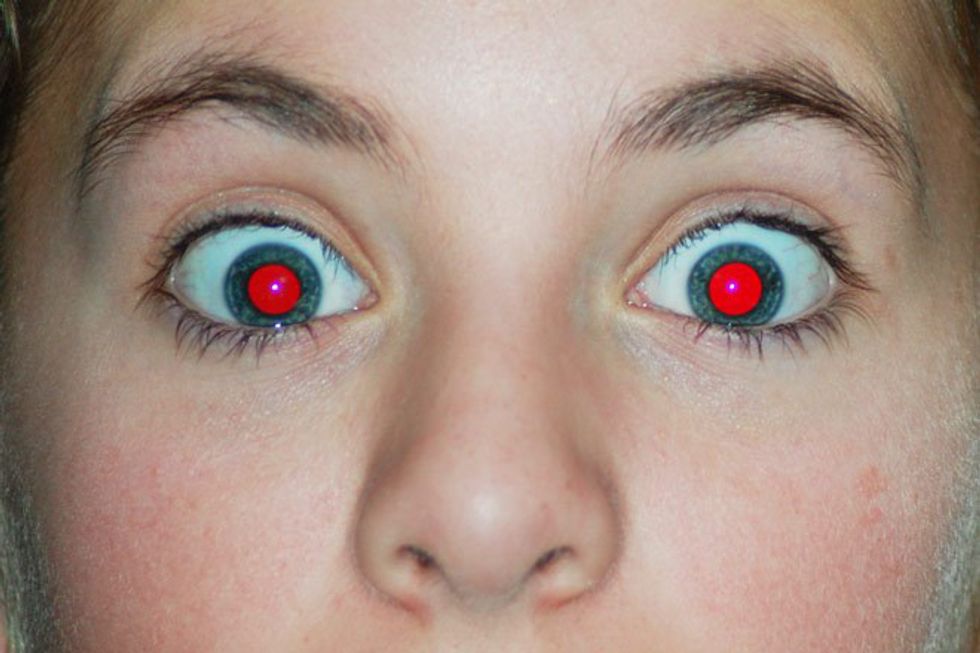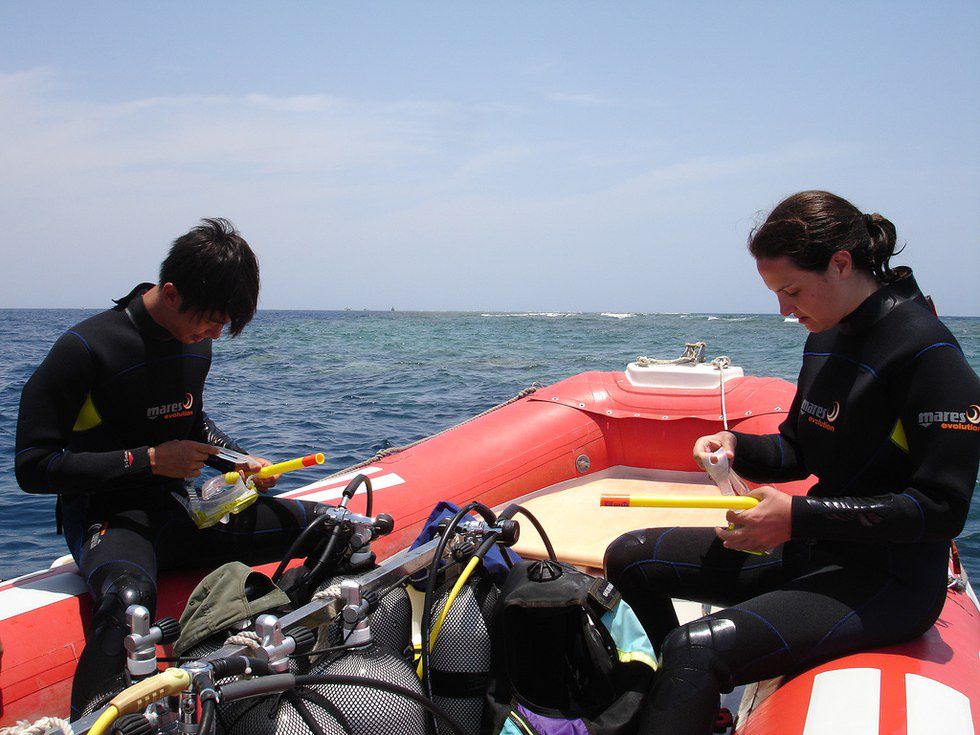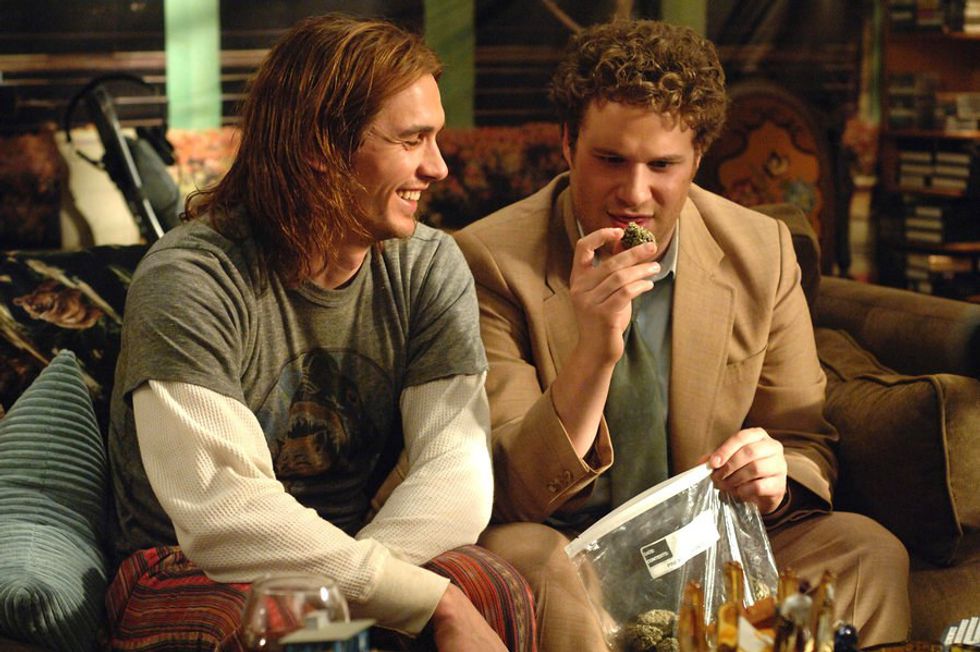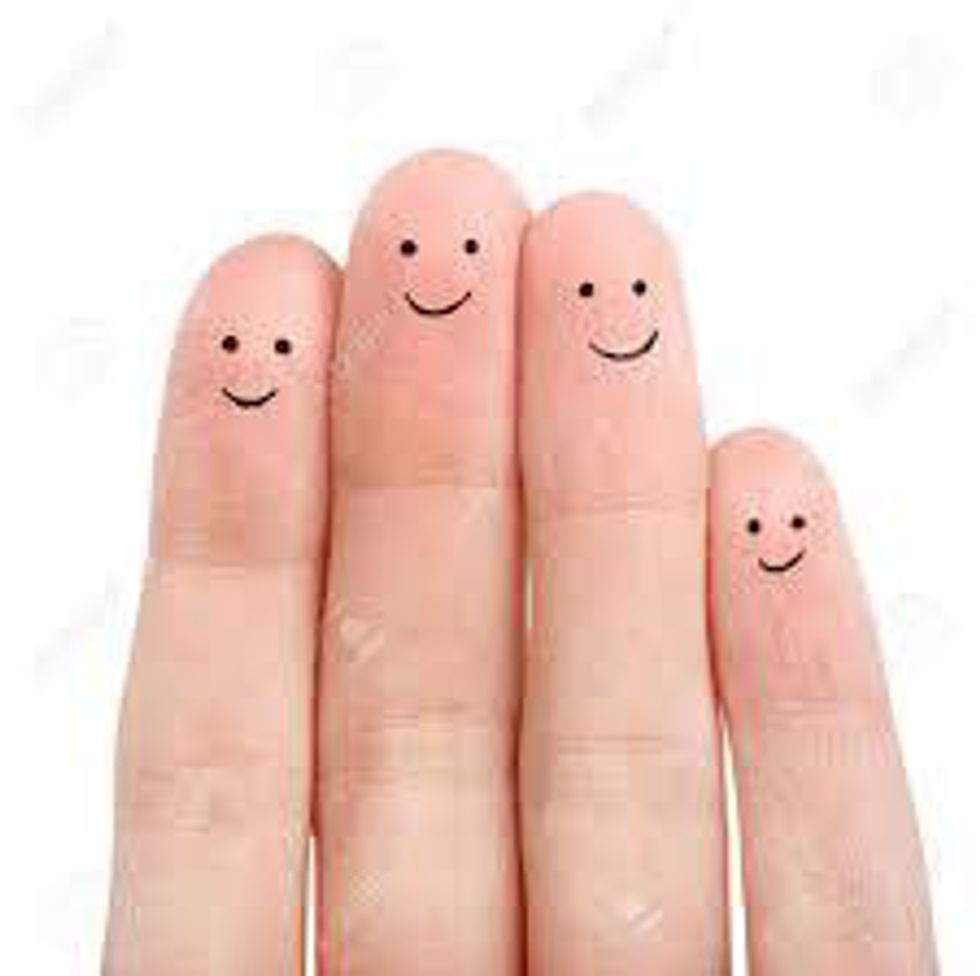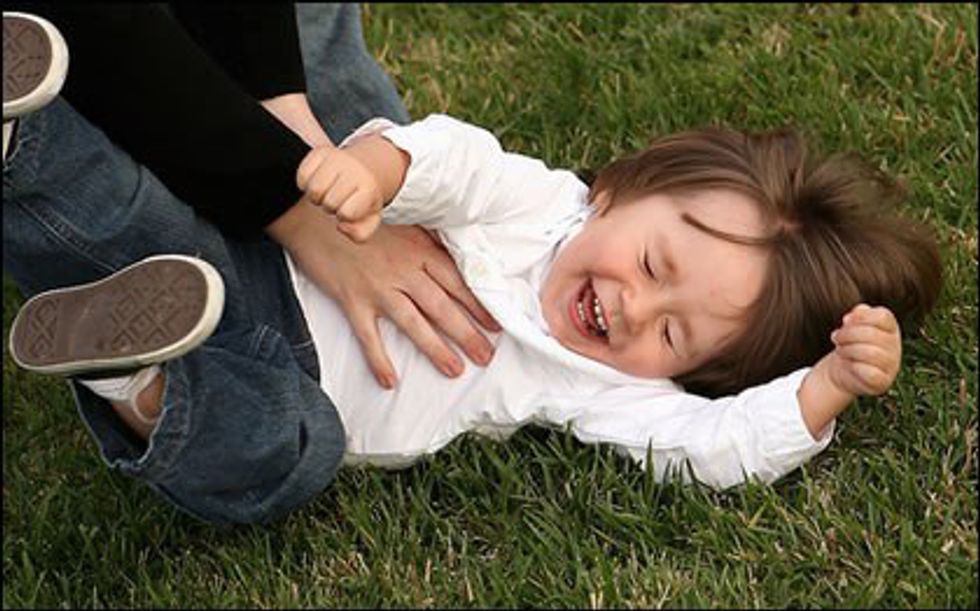Every day we go through life encountering strange and beautiful phenomenon, but rarely do we know why they actually happen. Here are 12 answers to life questions that you can impress your friends with, or at the very least give you a leg up in bar trivia.
1. Why do you get the spins when you drink too much?
You've probably been there. You stumble home after the bar closes looking forward to nothing more than the leftover pizza in your fridge and your warm, cozy bed, but as soon as you lay down, you feel like you're suddenly on the Tilt-a-Whirl at the carnival. You're obviously not actually spinning, so is it all in your head?
Well, kind of. More specifically, it's in your ears. Your inner ear houses the semicircular canals, which help your brain make sense of the world when your head moves, by the way the fluid inside the canals rubs against the hairs. This helps you from falling over when walking. "The Spins" occur when alcohol thins the density of your blood. When the density of your blood is out of whack, it changes the shape of structures in your ear, causing it to activate the hair cells and tell your brain you are spinning when you're just trying to get some much needed rest.
2. Why do you see stars when you rub your eyes?
Those little particles of light you see when you rub your eyes or get hit in the head with a baseball have a name: phosphenes. Phosphenes are activated by putting pressure on the ganglion cells in the retina of the eye. This pressure stimulates the cells in a very similar way that light does, causing you to see light where it isn't.
3. Why do body parts fall asleep?
Have you ever woken up and you can't even move your arm? You have to use your other arm to grab it and you're pretty sure if someone took an axe to it at that moment, you wouldn't even feel it. What causes this sensation isn't a whole lot more comforting however.
When your body part "falls asleep," it's actually means you're physically blocking the nerve pathways to that part of the body, so the brain has a hard time telling it what to do and getting feedback from the "asleep" body part. In addition, you can block off arteries that carry important nutrients, further complicating the matter. The tingling sensation you feel, caused by erratic signals in the pathways, is your brain's way of alerting you to move your arm or leg before nerve damage occurs.
4. What causes red eye in photos?
Ah, you finally got the perfect family photo. At the top of the Grand Canyon, just after sunset, but when you go to look at it, your perfect family looks like they've been possessed by the devil himself. Red eyes often occur when taking a flash photo in low light conditions. The pupil, like a camera lens, is wide open in low light in order to absorb as much light as possible and make seeing easier.
When a flash photo is taken, the pupil doesn't have time to constrict to a size able to accommodate the amount of light entering it. The red that you're seeing is actually a reflection of light off the retina, which is red because the choroid, the connective tissue that supplies nutrients to the retina, has a rich blood supply.
5. Why is the ocean salty?
You probably remember your first time in the ocean, or at least your first time accidentally gulping down some sea water. Suddenly, the pristine ocean seemed a little less perfect. The "salt" that you're tasting is actually dissolved sodium and chloride ions, and they don't come from the ocean at all. They come from rocks that have been eroded by acidic rainwater and are carried to the ocean in rivers, streams and runoff.
6. Why does spitting in goggles cause them to not fog up?
If you've ever been SCUBA diving or snorkeling, you might remember your instructor telling you to "spit, rub and rinse" your goggles to cause them not to fog up. If you're like me, you probably laughed because you thought they were playing a trick on you and then you had really foggy goggles all day long. It turns out, they're not messing around.
The fogging occurs because the air next to your face is warmer than the water surrounding it, causing condensation to build on the inside of your mask. However, when you spit into the mask, it lowers the surface tension of the condensation and causes water droplets in the mask to form into larger beads and roll away instead of adhering to the front of the mask and disrupting your vision.
7. Why do some plugs have two prongs and some have three?
You got it all set up. The Christmas light show is about to begin. All you need to do is plug the last cord into the extension cord, but wait a minute. You can't because your top of the line, life-size robotic Santa comes with a three prong plug and your extension cord only has a place to plug in two prongs. Why do bad things happen to good people, you ask? Well, to prevent electric shock of course! As annoying as they can be, are the three prongs even necessary?
Not entirely, but they are an additional safety feature for appliances with metal casing. The third prong acts as a grounding backup if a wire were to come free from the cord. If this happened on a two prong system and the wire were to come in contact with the metal appliance, the grounding circuit would be broken and it would cause a potentially fatal electric shock to the appliance and anyone using it. The only thing better than an awesome winter light show is to be alive to see it.
8. Why do men have nipples?
Men don't carry milk or breastfeed their young, so it seems a little unnecessary for men to have nipples at all. The reason for the nipples is the same reason we can't tell expecting parents the sex of their baby for the first few months of pregnancy.
All people (even your sexist redneck of a neighbor) follow a female blueprint for about 60 days, when testosterone then kicks in for males and causes changes in genetic activity, making males...male. At this point however, nipples are already positioned to develop. Although they are useless, they are also harmless, which means they have yet to disappear through natural selection.
9. Why do we have to sleep?
If you think about it, it's pretty weird that you just have to lay down and commit a third of your life to unconsciousness. Think about all the things you could get done if you just never had to sleep again...so why is it necessary? During sleep, memories are processed and transferred from short-term memory to long term memory, muscles are grown, tissues are repaired and hormones are synthesized.
Despite the many known benefits of sleep, it is still something of a mystery why people are programmed to sleep for such extended periods of time. Some theories suggest we sleep as a protective mechanism to avoid dangers in times we are particularly vulnerable, to conserve energy, restore our bodies and minds from adenosine, the chemical that makes us sleepy (and also the chemical that is blocked with caffeine use) or to create changes in the structure and organization of the brain.
10. Why does marijuana make you hungry?
Drugs do lots of crazy things to our brains, but the overwhelming "munchies" drive might be one of the strangest. Our brain naturally regulates our appetite through cannabinoids, but the THC in weed latches on to these cannabinoids and activates the neurons causing you to feel hungry, even if you just ate.
11. Why are our fingers different lengths?
Why do we have opposable thumbs or that short, stocky little pinky? Our hands are a product of evolution. It's likely the formation of our modern human hands occurred with the invention of tools. Humans needed to be able to more accurately and precisely throw, grip and handle tools. Another theory suggests our hands are formed this way in order to properly form a fist, which can be a powerful weapon in and of itself.
12. Why can't you tickle yourself?
A tickle from your mom, S.O. or BFF can cause you to laugh and squirm, but the exact same motion used on yourself causes nothing but awkwardness. The inability to tickle ourselves is actually a good thing. Our brain is programmed to predict our own movements and feelings, but cannot predict outside movements from others.
From an evolutionary standpoint, this helps us to pay attention to unexpected dangers like a poisonous snake slithering over our foot. When we try to tickle ourselves, our brain "shuts off" the areas that register the tickling sensation because our subconscious has already predicted it and registered it as normal, and opened up space for registering other unpredictable sensations.





